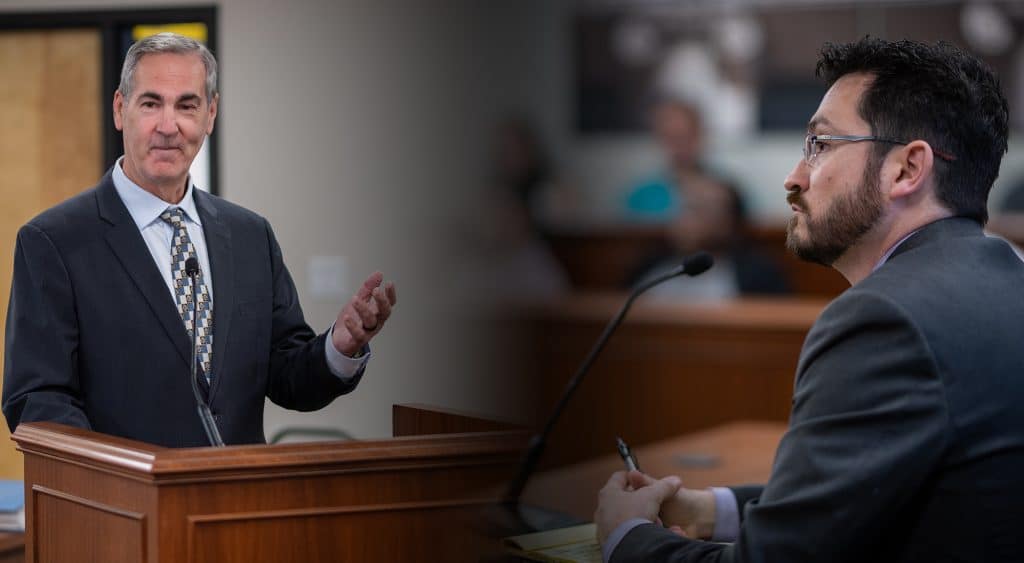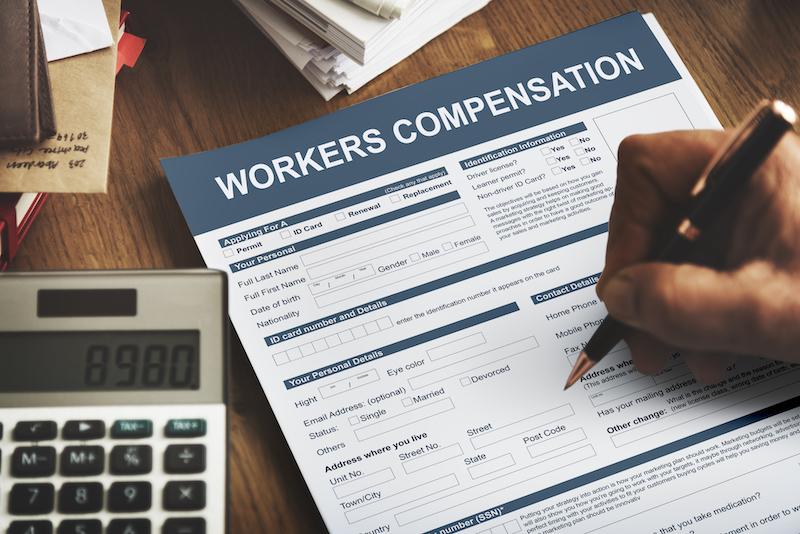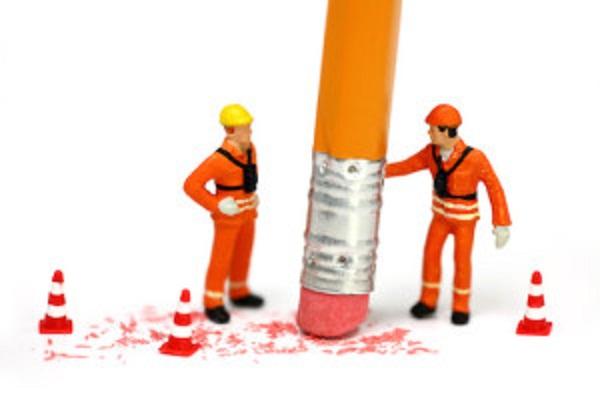
Did you get injured at your job?

Why choose us?
For over 50 years, the workers’ compensation attorneys at McDivitt Law Firm have helped injured workers obtain the benefits they are entitled to after a job injury. Our law firm has the experience and the resources needed to tackle these complex cases and we can assure that your rights are protected throughout. We know that life after a work injury may never be the same. That’s why we work tirelessly for our clients to ensure that they have the money they need to put their lives back together again.
Do I need a workers’ comp attorney?
After an on-the-job injury, many injured workers don’t believe that they need an attorney on their side. After all, the law entitles them to benefits, right? While this is true, an attorney can be invaluable along the way. Your attorney will be able to advocate to ensure that you receive the maximum amount of medical care and workers’ compensation benefits you are entitled to. Your attorney will also work to ensure that your future is protected and that you are not rushed back to work too quickly after an injury. If you are unable to return to your job or if you are permanently disabled, then your attorney can help you file for disability benefits.
- Workers whose injuries are severe
- Workers whose doctors believe that will not return to full health
- Workers who believe they will be unable to perform their work duties in the future
- Workers who are worried they may not be able to work in any profession or job again
- Workers who have sustained some degree of disability
- Workers with significant pre-existing conditions
- Workers whose claims have been denied
- Workers who do not believe that they are receiving their full benefits
- Workers who would like to dispute a decision made by their employer or insurance company
- Workers who do not understand the workers’ compensation process fully

What is workers’ compensation?
In Colorado, employers with one or more full or part-time employees must have workers’ compensation insurance. This insurance covers injuries and illnesses that occur during the scope of employment and that arise from a work-related task or function, regardless of who is at fault for the accident. It protects both injured workers and employers from long drawn-out legal battles and lawsuits. Workers who are injured on the job are entitled to benefits for health care expenses, some lost wages, total and partial disability, and death benefits
Pay Nothing Until McDivitt Wins For You.
“The service I got for my workman’s compensation was excellent. Very intelligent, honest, and gave sound advice. I was very pleased with my attorney. My case manager was also a lifesaver at more than one time.”

Have you been unfairly classified as a contract worker?
While anyone who is hired for pay could be considered an employee, independent contractors are not covered by workers’ compensation laws. Many employers try to avoid paying workers’ compensation claims by designating workers as independent contractors. If you believe that you have been unfairly classified as an independent contractor, contact an experienced workers’ compensation lawyer to review all of your legal options.
What is a workers’ compensation case worth?
The extent of your benefits depends largely on the extent of your injuries and the amount of time it will take to recover and return to your work. Workers’ compensation benefits cover the following:
- Health Care Expenses – all medical care and expenses from authorized providers. This includes hospitalizations, emergency treatment, therapy sessions, medications, and doctors’ visits.
- Temporary Disability – if you are unable to work for a length of time, workers’ compensation benefits will reimburse you for ⅔ of your average weekly wage.
- Permanent Disability – if you are unable to fully recover from your injury, you may be entitled to permanent disability benefits. To be eligible for PTD, you must no longer be able to perform any type of work in your lifetime.
- Death Benefits – if someone you love has been killed because of an on-the-job injury, you and your family may be entitled to weekly payments, as well as a portion of the funeral expenses.
- Disfigurement Benefits – includes anything from surgical scarring, walking with a limp, etc.
You Deserve Fair Compensation
Workers’ Compensation laws are designed to protect employees’ rights to compensation for injuries and illnesses sustained on the job, and each Colorado Workers’ Compensation attorney at McDivitt will fight on your behalf to make sure these laws are upheld. We’ll work as a team to get you the money you need for medical expenses, rehabilitation costs, disability payments, and more.
Workers’ Compensation Frequently Asked Questions
What if my claim is denied?
If your workers’ compensation claim is denied, then you should file an Application for Expedited Hearing within 45 days of the denial. An attorney is the key to meeting deadlines and preparing the documents necessary to reverse a workers’ compensation denial.
Can I receive pain and suffering through workers’ compensation?
No, if your injuries were self-inflicted or if you were in a fight at work that arose from personal issues as opposed to work-related issues, it will not be covered by workers’ compensation.” Likewise, if you were under the influence of drugs or alcohol at the time of the accident, your monetary benefits may be reduced by 50% or terminated altogether; however, your medical benefits would likely not be impacted.
Are all injuries covered by workers’ compensation?
No, if your injuries were self-inflicted or if you were in a fight at work, it will not be covered by workers’ compensation. Likewise, if you were under the influence of drugs or alcohol at the time of the accident, you may not be covered by workers’ compensation. If you were at work but not performing work duties (such as running personal errands) then you would also not be covered by workers compensation.
Can I file a lawsuit against my employer?
No, generally speaking, you cannot file a lawsuit after you’ve been injured on the job. There are exceptions to this, however, and an experienced workers’ compensation lawyer can examine your case and help you choose the legal options that are best for you.
Are occupational diseases covered by workers’ compensation?
Yes, illnesses that you have contracted during the course of employment would be covered by workers’ compensation. Some of the most common are mesothelioma, loss of hearing, carpal tunnel syndrome, and radiation disability.
Will I still be able to return to work?
Your employer is not required to hold your job for you, however, your employer may not terminate your employment simply because you filed a workers’ compensation claim. If you have questions regarding your employment, an experienced workers’ compensation lawyer can help.
How Do I Maximize My Chances of Getting Workers' Compensation After an On-The-Job Injury?
After suffering an on-the-job injury, there are several things you can do to maximize your chances of getting workers’ compensation. Here’s a brief overview of steps to take after a workplace injury.
- Report your injury: As soon as you get hurt, tell your employer about the injury. Colorado requires you to notify your employer in writing within 10 days of any on-the-job injury. Hold onto a copy of your injury report for your lawyer.
- Receive treatment and get a detailed medical report: Get any necessary medical treatment as quickly as possible. If you need immediate help after the injury, get medical treatment right away – you can report the injury to your employer afterward. After receiving treatment, ask for a full medical report explaining any procedures you received, future treatment plans, long-term impacts, and medical expenses.
- Contact a lawyer: Once you’ve received your treatment, contact a lawyer. It’s always a good idea to check online reviews and get a free consultation with a law office before signing a contract. You need to complete this step before speaking with your employer’s insurance provider.
- Provide your lawyer with expenses and documentation: After choosing a lawyer to represent you, send them all of your medical expenses, treatment plans, and any reports you submitted to your employer. They need this information to build a case and prove that the workplace injury was your employer’s fault – not yours.
- Stay connected with your lawyer: Throughout the whole process, maintain close contact with your lawyer. They should be copied on all communication between you and your employer’s insurance. Follow their advice as well. Doing so can prevent you from saying or doing something that could lower your chances of receiving worker’s compensation.
If you follow these steps under the guidance of an experienced worker’s compensation lawyer, you can greatly increase your odds of getting the compensation you need.

Results & case studies
At McDivitt Law Firm, we have a proven track record of success representing injured workers obtain the benefits they need after a devastating on-the-job accident or illness. We have helped injured workers in Colorado Springs, Denver, Pueblo, and throughout the state of Colorado obtain the benefits they are entitled to after claim denials. We understand the intricacies of workers’ compensation claims and the issues facing injured workers.
We’re here when you need us
Whether you need help filling out paperwork to report the accident or you’ve just been denied benefits and need to appeal your claim, you need McDivitt Law Firm. If you’ve been injured at work, you may be entitled to benefits through your employer’s workers’ compensation insurance plan. Unfortunately, this doesn’t always mean that you will obtain the benefits you deserve. When this occurs, you need an experienced Colorado workers’ compensation attorney on your side. At McDivitt Law Firm, we have offices conveniently located throughout Greater Colorado. Our attorneys are ready to assist you in a moment’s notice.







